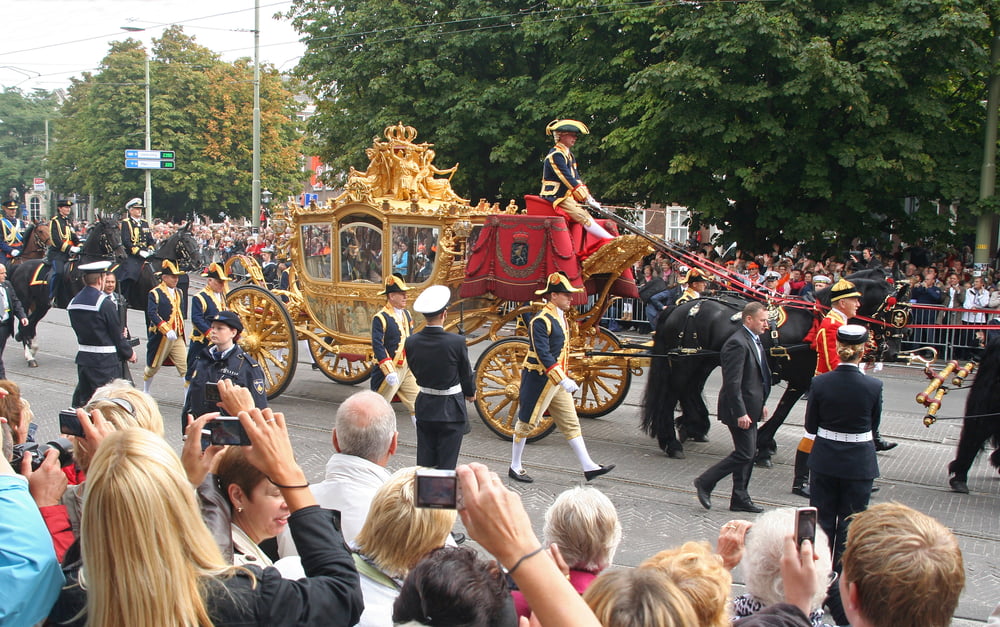King Willem-Alexander announced that the Golden Coach will not be used for the time being. After a restoration of more than 5 years, the Gouden Koets is still in a glass enclosure in the courtyard of the Amsterdam Museum until 28 February.
You can view the carriage for free as long as the museum is closed. The Amsterdam Museum opens the gates to its courtyards so that visitors can view the carriage for free and safely in the outdoor area. Security monitors so it doesn't get too crowded and enough distance is kept. The visitor can virtually walk through the surrounding polyphonic exhibition rooms on www.goudenkoets.nl.
The Oranges had a special bond with the Jordaan for centuries. In the 18th century, the Jordanians saw the Oranges as protectors against the oppressive Amsterdam regents. In the 19th century, this mainly became a special love for the special people of the royal family. The culmination of that love was the fundraising in 1897 for the Golden Coach for Queen Wilhelmina. A capital of quarters was raised.
Love-hate relationship
Annemarie de Wildt of the Amsterdam Museum wrote the book 'Amsterdam and the Oranges'. De Wildt: “It was a love-hate relationship. Amsterdam always had principled opponents against the monarchy and in the Republic there was also aversion to the Oranges. But Amsterdam is also opportunistic. A good relationship with the royal family is important for the city. And for the Oranges it is also important to win over the Amsterdammers. In 1980, the relationship of the newly inaugurated Queen Beatrix with Amsterdam was icy. But it kept getting better. The relationship with Máxima and Willem-Alexander is good. That is also because the power of the royal family is now smaller.”
More information - click here
Also read: King opens exhibition about controversial Golden Coach



